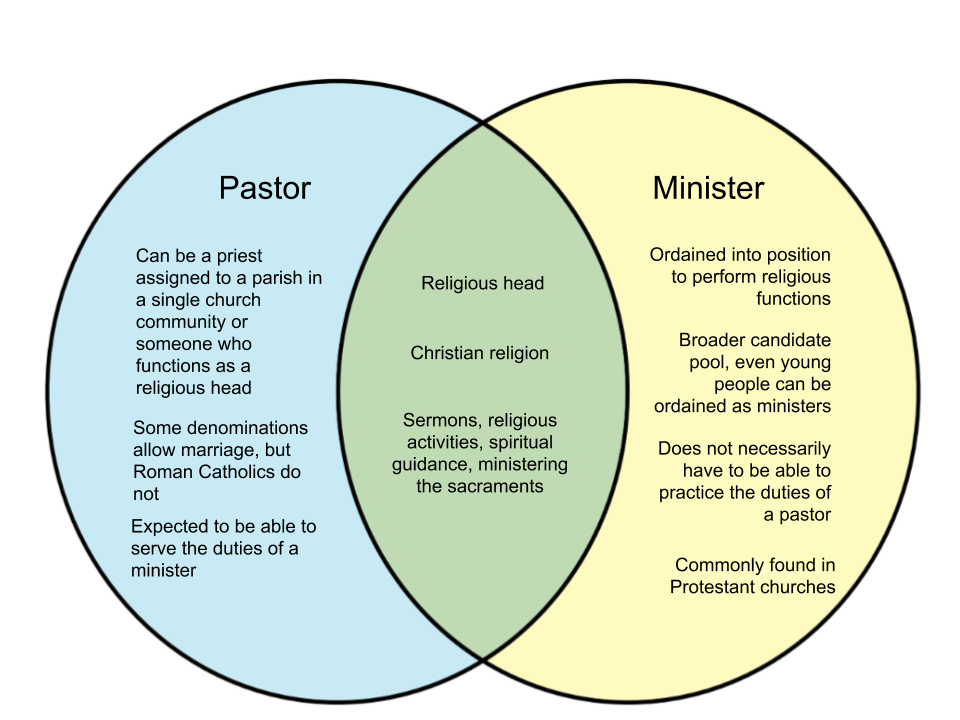Difference between Pastor and Minister
Religion plays a large role in society. Within these religions, there are people who are tasked as administrators, teachers, and many other duties. One of the largest religions, Christianity, has a large faculty of clergy that come in many names and titles. In this article, we will discuss the commonly confused pastor and minister.
A pastor is initially described as an elder in the Bible. In the past, they are assigned to every city or district as overseers. In modern settings, a pastor’s description differs depending on denominations. In Roman Catholic circles, they are priests assigned to a specific parish of a single church community. In Protestantism, it is a title given to someone who can function as a religious head. There are some denominations that allow a pastor to be married, while there are also some who do not allow it. Variables like clerical marriage/celibacy also contribute to these policies.
A minister is a preacher, and generally has to be ordained into his position. This does not, however, require that they immediately assume the position of a pastor. Pastors, on the other hand, are expected to be able to perform the duties of a minister. A person can be a minister without being a pastor or performing religious activities prior to their ordination. The premise of a minister can typically be found in Protestant churches.
| Pastor | Minister | |
|---|---|---|
| Definition | A priest assigned to a specific parish in a single church community or someone who functions as a religious head | Someone ordained into position who performs religious functions like teaching and performing services |
| Titles/Way of address | Reverend, Pastor, Father | Reverend, Pastor, Father |
| Duties | Advise and counsel, preaching, worship services, sermons, ministering sacraments | Coordinating church activities, administrative duties of the church, ministering sacraments, preaching, spiritual guidance |
| Training and qualifications | Depends on the denomination; common requirements are speaking, attentiveness, social perceptiveness. There are also denominations that prefer someone with a bachelor’s or master’s degree | Requires a sense of calling, other qualifications depend on denomination. Some denominations require attendance in a seminary or tertiary education |
| Marriage | Depends on the denomination; Roman Catholic priests cannot marry | Depends on the denomination |
